Русский Феникс. Между советским прошлым и евразийским будущим - [84]
The date, 7 November, marks the birth of a new community, which — after 9 May 1945 — evolved into a Soviet nation with the awareness of a winner-nation. The Soviet Union has an attractive image for the Western society due to its active and intelligent propaganda. In many respects, due to the existence of USSR, Western Europe has gradually introduced a social policy and the idea about a social state. The purpose was not to imitate USSR but to make sure that the European society would not wish to have its own Soviet Union. This has brought more humanity into Europe and it was not a mere chance that after the end of the Cold War the Western European citizens began abandoning the social idea. Yet, the denial of 7 November in post-Soviet Russia is the serial example of a Chaadayev-styled attitude towards one’s own history — excessively critical self-denial to the extreme.
Belarus, on its part, accepts the whole Soviet heritage: it not only sacralizes WWII but also observes the Day of the October Revolution. Besides, the day of the liberation of Minsk from the Nazis (3 July) is a national holiday. The Eurasian Union can guarantee the sovereignty of Belarus and the other member states if it begins functioning in accordance with its original design: as an economic and pragmatic union of equals and not as a neo-Soviet project, as demonically presented by the Western analysts, threatened by its competition. The lack of own gas transmission system on the territory of Belarus and its circumventing by North Stream serve to a certain extent as a guarantee for this country’s soverignty.
One of the reasons for the external provoking of the Ukrainian crisis is namely the gas connection between Russia and Europe and the US struggle to replace Russia from the European market and its remodeling after the US one through the signing of the Trans-Atlantic Free Trade Agreement. USA also wants to make the EU dependent on shale gas, deposits of which are to be found in Southeastern Ukraine as well.
Geopolitically, economically and culturally, the European Union is close to the Eurasian one, but we are about to see whether Europe will run from Lisbon to Vladivostok in line with the Russian strategy, covering also Belarus, being an European country with Slav-Baltic culture, complementing the Russian one, which can serve as a bridge between Russia and Europe thus taking the role, which Ukraine failed to play.
Kazakhstan is most moderate regarding its Soviet past: there is no sacralization of USSR, as in Belarus. However, it marks 9 May and, at the same time, maintains the historical memory about the camps with magnificent museums. It does not follow the example of Ukraine, which has focused on the complex of the victim, presenting the Holodomor [hunger extermination] as a national genocide but instead shows it as perennial policy for all Soviet peoples covered by the collectivization. Kazakhstan does not forget 16 December 1986, when the special unit, along with Interior Ministry troops, acting on order by Mikhail Gorbachev, busted severely a rally of the Kazakh intellectuals in Almati, which protested the appointment by Kremlin of an outsider (Gennady Kolbin) for First Secretary of the Communist Party of the Republic. It is not accidental that 16 December has been chosen as Independence Day in Kazakhstan. In the meantime, Nazarbayev perceives USSR as ‘our former common country’[435].
The fact that all three regimes — of Lukashenka, Putin and Nazarbayev — are authoritarian in a specific sphere allows to compensate for the ‘tough historical deadlines’ with operational fastness of decisionmaking, which is unattainable for the parliamentary democracies, requiring procedural time. The problem with the authoritarian regime is the choice of a successor of power, which creates interregnum contributing to the political crisis but this specific situation is inevitable and surmountable.
The linguistic dualism in Belarus and Kazakhstan having preserved the status of the Russian language equalizing it with their national languages predetermines the fact that the Russian should be main communication language of the future Eurasia — lingua franca.
Where is the East in Russia’s post-Soviet identity?
The East is geopolitically identical with Russia, which is Eurasian, as its project of regional integration and even globalization for a part of the post-Soviet area (mostly the Eastern one). On the other hand, Russia’s geopolitical vector is oriented towards the West having as its ultimate goal the Big Europe — from Lisbon to Vladivostok. The same area could also be called ‘Big Eurasia’ but it has been preserved as ‘Big Europe’ in the post-Soviet geopolitical lexis because the Russian cultural identity is European. In this context, the concept of ‘European identity’ is important because since 1991 there has been a trend of suggesting that the ‘Eastern European identity’ is second-rate compared to the ‘Central European’ or the ‘Western European’ ones.
The concept of ‘Eastern Europe’ is only geopolitical and is related to the Soviet sphere of influence in the Eastern Bloc in the period from WWII to 1991. The concept of ‘Central Europe’ is not less political. It is often relayed in order to isolate the Belarusians and the Ukrainians from the ‘East’ (or Russia). However, for the time being, it remains artificial with the former and painful with the latter. The culture is either European or not and any other addition — Western, Eastern, Central, etc. — is geopolitical. For Russia, the East has been present in the Russian culture only after its Europeanization (in this respect, the East is an endless source of enrichment of the Russia and, through it, of the European culture).
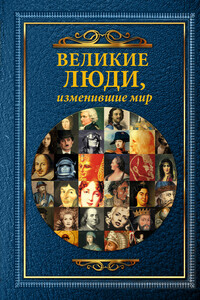
Эта книга о людях, которые изменили мир и оставили свой след навеки!Мужчины, которые вершили историю! Умные, великие, мудрые, сильные и гениальные! Мужчины, сделавшие невероятные научные открытия, благодаря которым мы знаем, как устроен мир!Как часто вы слышите, что женщины по сравнению с мужчинами ничто? Что женщин нет в науке, войне и медицине? Как часто вы встречаетесь с изречениями, что женщинам нет места в политике? Частенько? Но не забывайте: за каждым великим мужчиной стоит великая женщина!Это потрясающая книга, которая окунет вас в мир прекрасного, изысканного и невероятно мудрого!
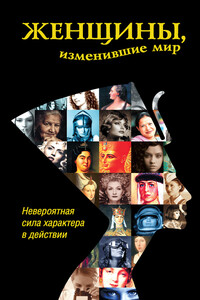
«Женщины, покорившие мир» — прекрасное издание о великих женщинах. Благодаря этой книге вы познакомитесь с самыми знаменитыми женщинами разных веков, проникнитесь их трагичными историями и смелыми решениями. Узнаете о великих женщинах политиках, воительницах, императрицах и ученых, философов и писательниц, о женщинах которые пленяли своей красотой и делали этот мир прекрасней.
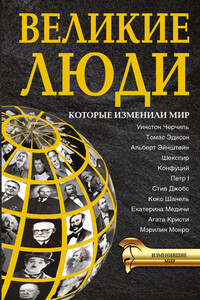
Историю творят великие личности, и эта книга о них. Благодаря могущественным, сильным, гениальным мужчинам и женщинам менялся мир, совершались открытия, разрабатывались новые технологии. Биографии этих людей всегда вызывали интерес, восхищение, удивление и желание понять, в чем же их секрет?Перед вами истории жизни людей, которые изменили наш мир. Петр Великий, Томас Эдисон, Наполеон, Цезарь, Жанна д’Арк, Екатерина Великая, Маргарет Тэтчер, Коко Шанель – это люди-легенды. Их жизнь вроде бы на виду у всех, но у каждого – свой секрет, своя тайна, своя неповторимая судьба.

"Литературная газета" общественно-политический еженедельник Главный редактор "Литературной газеты" Поляков Юрий Михайлович http://www.lgz.ru/.
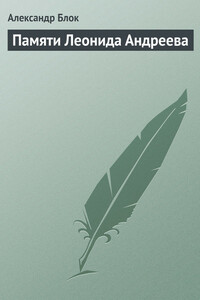
«Почему я собираюсь записать сейчас свои воспоминания о покойном Леониде Николаевиче Андрееве? Есть ли у меня такие воспоминания, которые стоило бы сообщать?Работали ли мы вместе с ним над чем-нибудь? – Никогда. Часто мы встречались? – Нет, очень редко. Были у нас значительные разговоры? – Был один, но этот разговор очень мало касался обоих нас и имел окончание трагикомическое, а пожалуй, и просто водевильное, так что о нем не хочется вспоминать…».
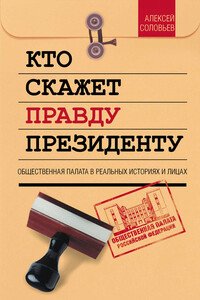
Деятельность «общественников» широко освещается прессой, но о многих фактах, скрытых от глаз широких кругов или оставшихся в тени, рассказывается впервые. Например, за что Леонид Рошаль объявил войну Минздраву или как игорная мафия угрожала Карену Шахназарову и Александру Калягину? Зачем Николай Сванидзе, рискуя жизнью, вел переговоры с разъяренными омоновцами и как российские наблюдатели повлияли на выборы Президента Украины?Новое развитие в книге получили такие громкие дела, как конфликт в Южном Бутове, трагедия рядового Андрея Сычева, движение в защиту алтайского водителя Олега Щербинского и другие.
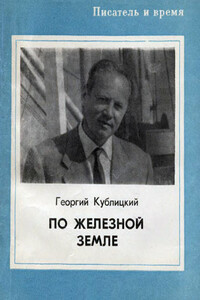
Курская магнитная аномалия — величайший железорудный бассейн планеты. Заинтересованное внимание читателей привлекают и по-своему драматическая история КМА, и бурный размах строительства гигантского промышленного комплекса в сердце Российской Федерации.Писатель Георгий Кублицкий рассказывает о многих сторонах жизни и быта горняцких городов, о гигантских карьерах, где работают машины, рожденные научно-технической революцией, о делах и героях рудного бассейна.
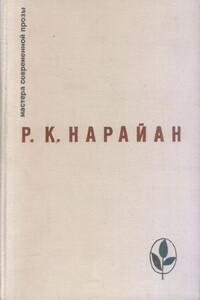
Свободные раздумья на избранную тему, сатирические гротески, лирические зарисовки — эссе Нарайана широко разнообразят каноны жанра. Почти во всех эссе проявляется характерная черта сатирического дарования писателя — остро подмечая несообразности и пороки нашего времени, он умеет легким смещением акцентов и утрировкой доводить их до полного абсурда.